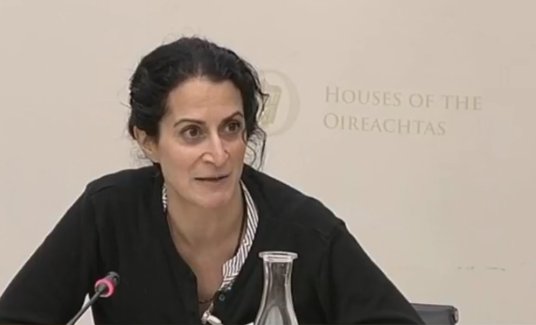
On January 29, 2018, the Irish government announced that it will hold a referendum on the provision of the Constitutions which limits abortion access. In deciding this, it took into consideration the recommendations issued on December 20 by the Joint Committee of the Irish Parliament (the Oireachtas).
Ireland has one of the most restrictive abortion law regimes in the world, only allowing abortion in cases of risk to a woman’s life. The Joint Committee on the Eighth Amendment of the Constitution was formed to review the Citizens’ Assembly recommendations calling for constitutional reform of Article 40.3.3 (the Eighth Amendment) which guarantees an equal right to life of the “unborn” as to a pregnant woman. The Eighth Amendment was inserted in the Constitution in 1983, after a bitterly contested referendum. The intent of the Amendment was to halt the wave of liberalization of European and US abortion laws from hitting Ireland. An Amnesty International report shows how the Eighth Amendment fundamentally shaped the restrictive scope and content of Ireland’s abortion law and the quality of care received by all pregnant women and girls, not just women seeking abortion.
For three months in autumn, 2017, the Joint Committee assessed the Citizens’ Assembly recommendations and heard from scores of witnesses, including myself. I provided expert testimony on the impact of the Eighth Amendment on women and girls, the human rights violations resulting from such a draconian legal framework, and the practical reality that thousands of women from Ireland are accessing abortion either by travelling overseas or purchasing the abortion pill online. As a result of this process, the Joint Committee recommended repeal of the Eighth Amendment, to align Ireland’s abortion law with human rights obligations and the laws of other European countries. These recommendations will also guide the government in drafting a referendum proposal that will go to the people.
The Joint Committee’s recommendations include ensuring abortion on request in the first 12 weeks of gestation, and beyond 12 weeks for fatal fetal impairment, life and health, including mental and physical health. They recognized that medical decisions are best made in a clinical setting, not by a legislature. While most recommendations align with women’s and girls’ health care needs, human rights norms and the laws of other European countries, others do not–such as recommendations which do not recognize the need to allow on abortion on grounds of rape beyond 12 weeks gestation and which explicitly disallow abortion on grounds of severe fetal impairment.
The Joint Committee also made important ancillary recommendations which would prevent unwanted pregnancies and ensure quality of care to all pregnant women. They include decriminalization of abortion (to reduce the chilling and stigmatic effect that criminal law has on provision of health care to all pregnant women), robust, evidence-based sex education, free access to contraception, equal access to high standards of obstetric care regardless of geography or socio-economic status, and improvements to counselling and support facilities surrounding pregnancy and abortion.
The government. in announcing the referendum. decided wording that effectively repeals the Eighth Amendment. It also announced that Minister for Health will prepare legislation in line with the Joint Oireachtas Committee’s recommendations on abortion access, which includes a 12-week “on request” period for abortion access.
This is a significant step for Ireland, where the abortion debate raged for decades with little government response until 2012, when the tragic and unnecessary death of Savita Continue reading

